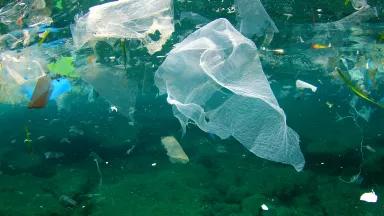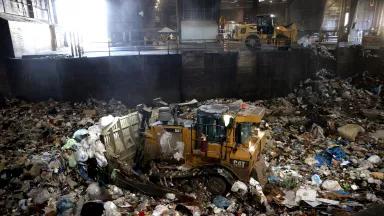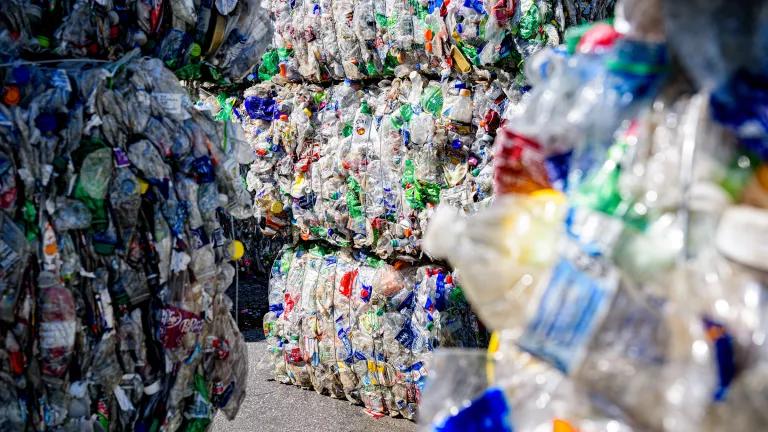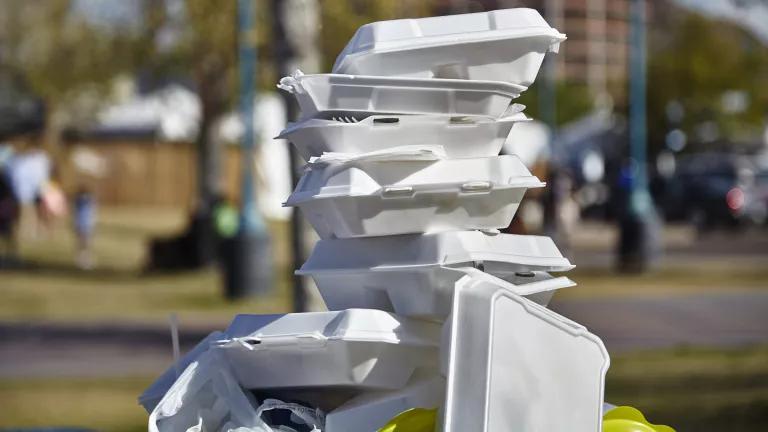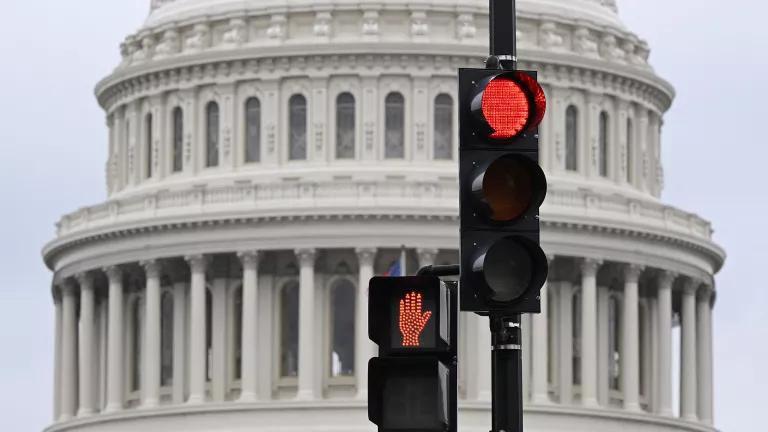Congress: Protect the Clean Air Act from Plastic Polluters
Congress’ critical role in addressing the plastic crisis: Don't support plastic polluters' plans to remove Clean Air Act restrictions on incinerating plastic.
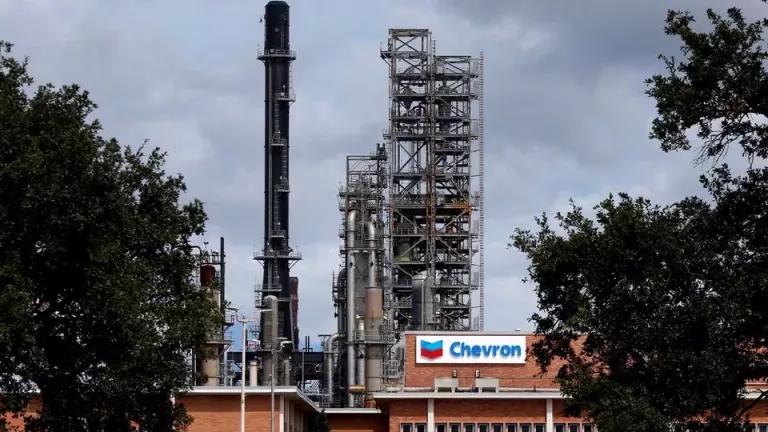
The Chevron Pascagoula Refinery in Mississippi
Jonathan Bachman/Reuters
As countries gather in Nairobi, Kenya, this week for the next round of negotiations on a global plastic treaty, the pressure is mounting for the United States to support strong measures to address the plastic crisis. Taking comprehensive action is critical to protecting public health, particularly in environmental justice communities that are disproportionately impacted by the pollution from plastic production as well as by incinerators that emit harmful waste when plastic waste is burned.
These treaty negotiations are a critical inflection point, and NRDC, along with more than 200 organizations, are calling on the Biden administration to take action. Last week, 240 organizations sent a letter to President Biden, urging the administration to shift its position and support stronger treaty provisions, including mandatory limits on plastic production, bans on single-use plastic and certain chemicals of concern in plastic, and rejection of the bogus “chemical recycling” as a legitimate method of plastic disposal.
Meanwhile, the American Chemistry Council is looking to Congress to exempt incineration of plastic waste (chemical recycling) from Clean Air Act regulations that protect public health. Lawmakers cannot allow this to happen.
Evidence continues to mount that chemical recycling (or “advanced recycling”) is a dirty, dangerous, inefficient, and ineffective industry-created smoke screen to divert attention away from the industry’s projected tripling of plastic production and to counter the growing movement for production limits on plastic and bans on single-use plastic and unnecessary plastic packaging. An exemption for chemical recycling under the Clean Air Act would be disastrous for people and for the planet.
It has been repeatedly noted that only a tiny fraction, if any, of the plastic waste purported to be chemically recycled is being turned in to plastic. Chemical recyclers are overwhelmingly turning it into various types of fuel, which is not recycling. As reported in two stories from ProPublica, the U.S. Environmental Protection Agency (EPA) has estimated that one such aviation fuel poses a one-in-four cancer risk and a boat fuel “could cause cancer in virtually everyone exposed over a lifetime.”
Yet the EPA approved both of these new chemical substances under the Toxic Substances Control Act's new chemical review program. This prompted a lawsuit from Cherokee Concerned Citizens, a citizen group living near the Chevron refinery where the fuels would be produced. Six organizations, including NRDC, also sent a letter to EPA Administrator Michael Regan stating our concerns and asking questions about the EPA’s approval process. Unfortunately, the EPA’s explanations for the approval of these plastic-derived fuels have been shifting and unconvincing.
Congress has an opportunity now to demonstrate its commitment to protecting people’s health, and already, some members have taken some steps forward.
Senator Jeff Merkley and Representative Jared Huffman recently introduced an updated version of the Break Free from Plastic Pollution Act. The bill offers many of the key provisions needed to begin to address the plastic crisis, including a ban on most single-use plastics, prohibitions on the use of the worst chemicals of concern in plastic, and a clear rejection of chemical recycling as part of the recycling equation. Congress should pass this legislation and signal to the Biden administration that we need definitive leadership, including stronger measures in the global plastic treaty negotiations, and that the EPA must cease approval—and revoke previous approval—for fuels containing chemicals derived from plastic waste.
To learn more about the plastic crisis and the chemical industry’s attempts to greenwash plastic incineration, see the reference materials below.
- Our newest fact sheet: “The Worst of the Worst: High-Priority Plastic Materials, Chemical Additives, and Products to Phase Out”
- NRDC issue brief: “Recycling Lies: ‘Chemical Recycling’ of Plastic Is Just Greenwashing Incineration”
- NRDC fact sheet: “'Chemical Recycling’: The Plastic Industry Is Greenwashing Incineration”
- Moms Clean Air Force fact sheet: “Chemical Recycling 101”
- Inside Climate News story detailing the hair-raising safety concerns at the Brightmark facility in Indiana: “Inside Indiana’s ‘Advanced’ Recycling Plant: Dangerous Vapors, Oil Spills and Life-Threatening Fires”
- The Intercept’s disturbing profile, “Garbage In, Toxics Out,” of the Braven Environmental facility in Zebulon, North Carolina; Braven produces some of the plastic-derived pyrolysis oil that poses the extreme cancer risks
- Two more Inside Climate News stories: “The Missing Equations at ExxonMobil’s Advanced Recycling Operation” raises questions about how much plastic, if any, is actually being chemically recycled at ExxonMobil’s facility in Baytown, Texas; “Dumped Not Recycled? Electronic Tracking Raises Questions About Houston’s Drive to Repurpose a Full Range of Plastics” reveals the fate of plastic waste that is ostensibly being collected for recycling in Houston
- Greenpeace report: Deception by the Numbers documents the chemical industry’s inflated claims for the success and potential of chemical recycling
- Beyond Plastic and IPEN report: Chemical Recycling: A Dangerous Deception is a comprehensive report that contains detailed data on facilities and technologies for those who are looking to evaluate the American Chemistry Council’s claims about chemical recycling; summary fact sheets are available in English and Spanish


